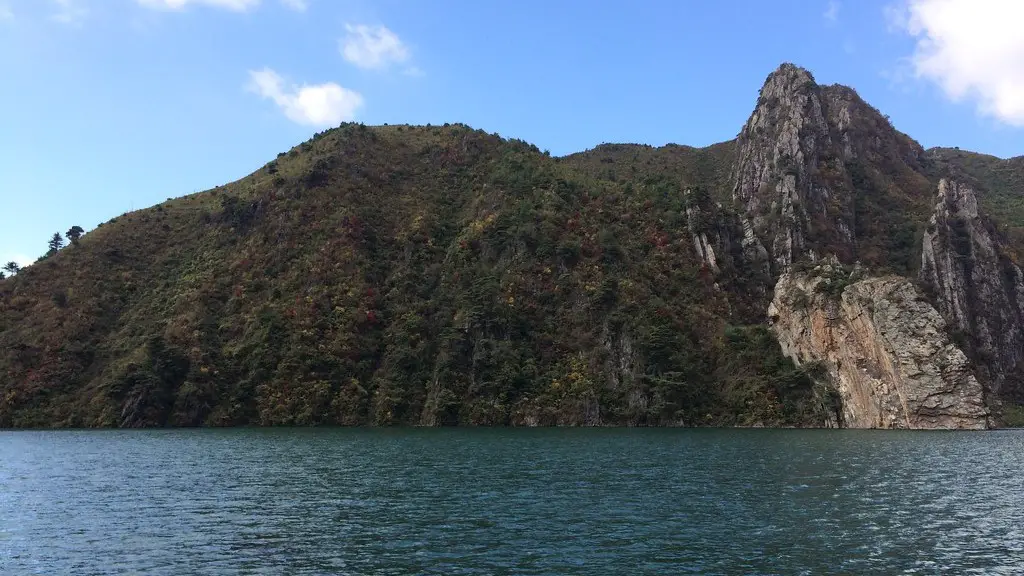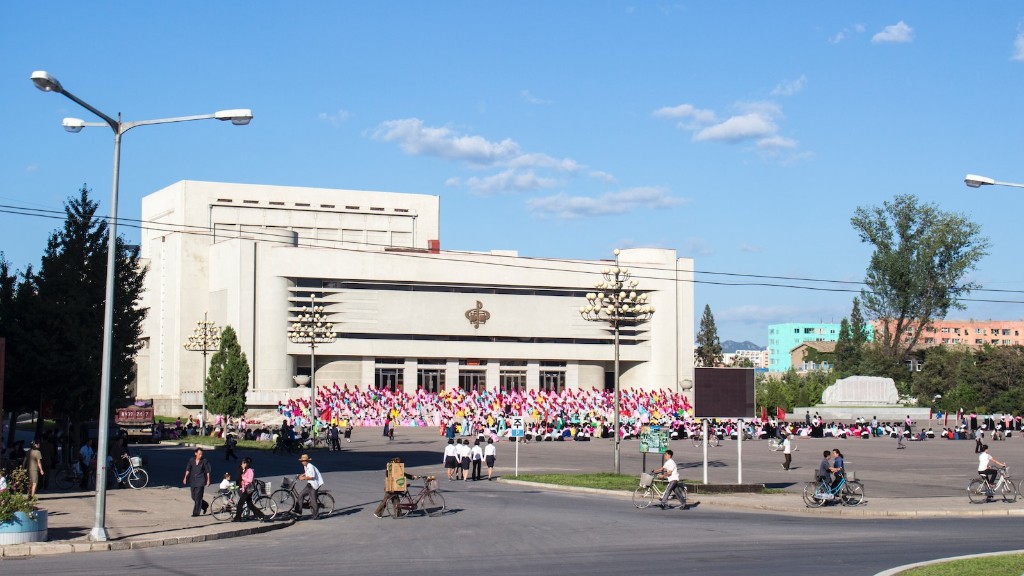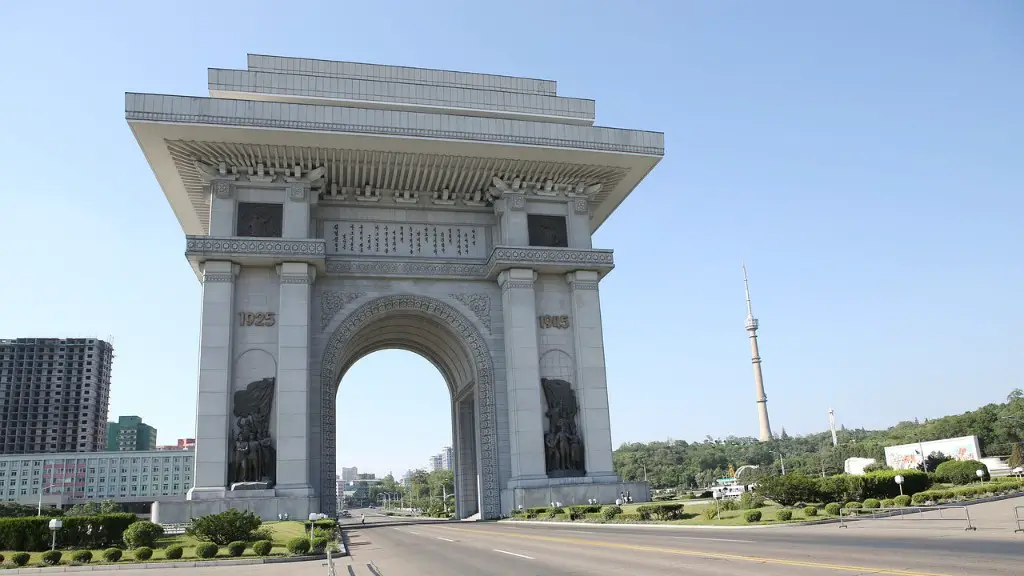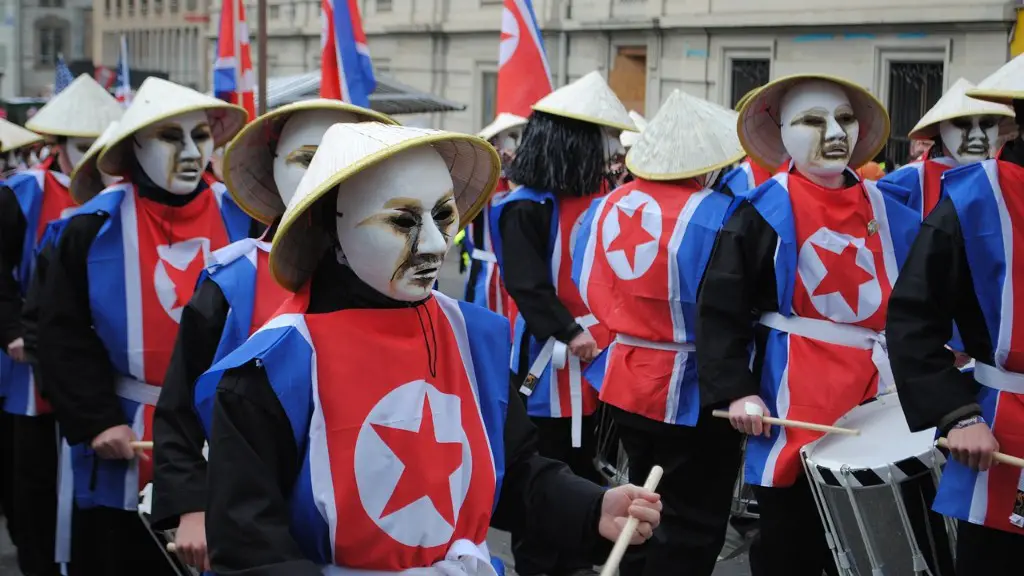North Korea is a state located in East Asia in the northern half of the Korean Peninsula. It is considered to be one of the most totalitarian and secretive governments in the world. For decades, North Korea has been a major challenge for the international community, in terms of human rights, security, and promotion of democracy. The tension between it and its neighbors, particularly South Korea, have been a constant source of concern and speculation.
The nation has an estimated population of 25 million people, the majority of whom live in dire poverty and exist in strict dictatorial rule. It is estimated that 80% of the population works in the informal economy and lacks access to basic healthcare and education programs provided in other countries. North Korea also has a long history of human rights violations, including detention of political prisoners and serious lack of freedom of speech and other civil and political rights.
The country is officially known as the Democratic People’s Republic of Korea and is led by Supreme Leader Kim Jong Un, who took power in 2011. Kim has continued the policy of his father and grandfather by clamping down any opposition to his rule. Under his leadership, North Korea has continued to build up its nuclear arsenal, and has not hesitated to showcase its military prowess through provocations and missile tests.
The American government and other Western powers have long sought to push for a diplomatic resolution to the conflict. However, the North Korean government has proven to be very resistant to change and has taken an increasingly aggressive stance towards its neighbors and the international community. The United Nations Security Council has imposed a series of sanctions on the country in an effort to pressure it to back away from its nuclear ambitions and comply with international laws and norms.
In spite of these efforts, the situation in North Korea has not improved significantly. There is an urgent need for peaceful engagement and dialogue between the countries involved, in order to bring about genuine change and improvement in the situation. Such negotiations should focus on the improvement of humanitarian conditions, the reduction of nuclear threats, and the eventual withdrawal of international sanctions.
It remains to be seen, however, if North Korea is open to engaging in such talks. There is hope that with increased pressure from the international community, North Korea will be forced to take steps towards a more reasonable and just policy. Only time will tell.
Limited Exposure to the Outside World
North Koreans have limited exposure to the outside world. Access to the internet, foreign media, and any form of communication with countries outside of North Korea are strictly controlled and monitored. North Korean citizens are heavily monitored and censored by the government, with only a fraction of them being able to access the global news and information available in the rest of the world.
The North Korean government also strictly regulates the type of information that its citizens are allowed to receive. All media outlets are state-run and only a few websites are allowed to be accessed. The government limits the access of international news and critical news about the government. This censorship of information extends to all forms of media, including books, newspapers and magazines.
The North Korean government also attempts to isolate its people from the rest of the world by controlling the media and entertainment industry. Movies, television shows, and music that is available to North Korean citizens is heavily censored, with only music and movies approved by the government being allowed. As such, North Koreans have extremely limited access to information about the world around them, as well as current events taking place outside of their country.
The government also employs a variety of tactics to limit contact with the outside world, including limiting travel across its borders and restricting diplomatic relations. As a result, many North Koreans have limited opportunities to learn firsthand about the wider world and their own country’s history and culture.
Human Rights Abuses
North Korea is thought to be one of the worst violators of human rights in the world. Those who dare to speak out against the government or criticize the government in anyway are arrested, tortured, and in many cases, executed. Prisoners are often subjected to inhumane conditions and treatment, including physical and psychological abuse.
North Korea also has a history of denying its citizens basic civil and political rights. Freedom of speech, press, and assembly are severely restricted. Arbitrary arrests and detention are a common occurrence, with those deemed to be a threat to the government or its leaders often being targeted. Reports of torture in North Korean prisons are widespread, with recent reports of prisoners being targeted because of political beliefs or their engagement in peaceful political activities.
The nation also has a long history of abuses against women and children. These include forced abortions, human trafficking, and sexual violence. Child labor is also widely practised in North Korea and millions of children are estimated to be involved in dangerous, manual labour.
International human rights organizations have widely condemned North Korea’s human rights record, and have called upon the government to take meaningful steps to ensure the protection of its citizens. Such measures include lifting restrictions on basic civil and political rights, complying with international human rights standards, and allowing for greater access to humanitarian assistance.
The Need for Engagement
North Korea is a highly inward-looking nation with a long history of oppressing its citizens and limiting any form of contact with the outside world. The situation in North Korea has deteriorated in recent years, and it is clear that without some form of engagement and dialogue, the situation is not likely to improve.
It is important that the international community recognize the urgency of the situation and work towards a diplomatic solution. The continued restrictions on basic rights and freedoms, combined with the country’s increasing nuclear ambitions, make it clear that something needs to be done. Dialogue and engagement are needed in order to foster peace and stability in the region.
A peaceful resolution to the conflict in North Korea should be a top priority of the international community. It is essential that any efforts to improve the situation in North Korea are carried out in a manner that is respectful of the country’s sovereignty and its citizens. This means engaging in dialogue with North Korean representatives, providing humanitarian assistance, and refraining from military action. Such diplomatic efforts are essential if we are to bring about a lasting peace and stability in the region.
The Impact of International Sanctions
International sanctions imposed on North Korea have had a significant impact on the country, particularly in terms of its economy and its citizens’ standard of living. These measures have included the UN Security Council sanctions, as well as unilateral sanctions imposed by the United States, Japan and South Korea.
The sanctions have had far-reaching effects on the North Korean economy and have exacerbated poverty in the country. They have had a significant impact on the availability of basic goods and services, and have had a crippling effect on the country’s already fragile economy.
The impact of the sanctions on the North Korean people has been equally severe. With economic hardship now widely prevalent, millions of citizens have been forced to struggle to make ends meet. Poverty and malnutrition are now widespread, and reports of human rights abuses and exploitation are a regular occurrence.
It is clear that international sanctions have had an adverse effect on the North Korean people and economy. It is essential that any efforts to address the situation in North Korea take into account the impact of these measures and work towards a comprehensive and sustainable solution that is both respectful of the country’s sovereignty and in the interests of its citizens.
The Role of China and the US
China and the United States have a considerable role to play in resolving the situation in North Korea. As two of the most powerful nations in the world, they have a responsibility to help bring a peaceful resolution to the conflict.
China is seen as North Korea’s most important ally, and has thus far shown an unwillingness to take strong action against the country. It is essential that China takes steps to put pressure on North Korea and work towards diplomacy and engagement.
The US, on the other hand, has taken an increasingly aggressive stance towards North Korea. While it is important to maintain pressure on North Korea, it is also essential that any action taken by the US is balanced with diplomacy and dialogue.
For a lasting solution to the situation in North Korea to be achieved, it is essential that both China and the US take significant steps to engage in dialogue and foster peace in the region. If this is to be achieved, then both countries must work together and take concerted action in order to bring about real and lasting change to the situation in North Korea.
The Road Ahead
The future of North Korea is uncertain, and it is clear that solving the situation in the country is a complex and delicate task. It is essential that the international community takes a unified stance and works together to bring about a resolution that is respectful of North Korea’s sovereignty and its citizens’ rights.
The North Korean crisis will not be easy to solve, and will require patience and dedication from all involved. It is essential that the international community works together to ensure that the situation does not escalate any further, and that a resolution is achieved in a peaceful and responsible manner.
Only time will tell what the future holds for North Korea and its citizens, but it is clear that the situation requires urgent attention from the international community. It is essential that a peaceful resolution is sought and achieved, in order to bring about a lasting peace and stability in the region.





